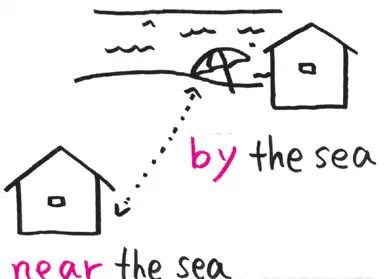双语阅读:国人说英语时7大高频错误(图)
 国人说英语时7大高频错误
国人说英语时7大高频错误大家是否也有同样的感觉,一说英语,就会发觉自己总是一会儿"he",一会儿"she",一不小心就搞错了对方的性别?一说英语,就会困惑,我"昨天"用过去时态了吗?资深美国外教Mike给大家现身说法支招破解中国人的7大高频口语错误。
I've taught more than 2,000 classes and at least 1,500 different students since I arrived here in Zhengzhou in 2011. I've trained more than 300 Chinese English teachers. I've compiled a list (below) of 7 common mistakes that I've observed in my students. I'm giving them to whoever can benefit in improving their English。
自2011年到郑州,我大概教过各类学生1500多名,培训的300多名中国英语教师。通过观察到学生们常犯的7大错误。现总结如下,以便大家学习参考。
1. Articles - Articles in English are a, an and the. I realize that such do not exist in Chinese. In fact, there are many languages that do not use articles. In English, we use them. To learn English well and to become proficient, you must learn them and use them. Obviously, you will use only 2 of them the vast majority of the time. 'An' is used before words (nouns) that begin with a vowel sound. Also, sometimes I hear people insert articles where one is not needed。
冠词—英语中的冠词即a, an以及the。我发现中文里并没有冠词,实际上,很多语言都不使用冠词,但在英语中,我们使用它们。要学好并精通英语,你必须学会使用它们,大多时候,你只需要用到其中2个即可。"An"通常置于以元音开头的名词之前,但我常常听到会有人在不合时宜时候使用冠词。
2. Genders - The Chinese language uses 'ta' (first tone) to represent the third person singular pronoun. In writing, however, it is specific in identifying male and female. English simply does the same except it does it also in spoken language. I hear a lot speakers who have spoken English for many years, confuse the genders. It just takes practice to train your brain to automatically come out with the correct gender that you want to refer to。
性别—中文里以"TA"(第一声)作为第三人称单数代词,男"他"女"她"读音相同。当然书写的时候区分男女性别。英语中"TA"的书写跟汉语一样,但区别于汉字,英语中"他"和"她"的发音也不同。我时常听到多年说英语的人依然对性别指称混淆不清。其实,只要多加训练,你的大脑就会自动输出你想要表达的正确性别指称。3. Also, in the third person singular, most verbs require an 's' at the end of the word. You don't have to learn this rule for any other verb except when referring to 'he/she/it' or if you are using a proper name. Again, focus on this and practice it even if you only do it silently in your mind。
此外,当句子中出现第三人称单数代词时,大多动词后需要在其后加上 "s"。其实,你只需要记住"s"跟在"他/她/它"或具体的名称后面就好了。重申一下,注重这一点并付诸于实践,即使你只在心中默念,也会收到很好的效果。4. Another mistake that is common is when a plural noun is referenced. In Chinese, one will express several dogs as 'many dogs.' This lets the reader know that the speaker is referring to more than one dog. In English, we add an 's' to the end of most words to make them plural. 'Dogs'
另一个常见错误即名词的复数问题。在中文里,我们用量词"许多狗"来表达复数概念。而在英语中,我们在名词后加"s"代表复数,"dogs"即表达许多狗的概念。5. Verb tenses are also confused by many Chinese English speakers. There is no shortcut to learning what they are in English. We don't say, 'yesterday I walk to school.' We say, 'Yesterday, I walked to school.' And with irregular verbs, we wouldn't say, 'Yesterday I run to school.' We say, 'Yesterday, I ran to school.' Irregular verbs are verbs that don't fall within the 'adding ed rule.' There are lists of them on the Internet。
动词的时态也是困扰中国英语使用者的难题之一。在英语学习中,学好它们并无捷径可走。我们说"Yesterday, I walked to school"而不是"yesterday I walk to school."。涉及到不规则动词,它并不适用于一般动词变换规则,它的过去式变换表可以在网上找到。比如,我们说"Yesterday, I ran to school"而不是"Yesterday I run to school"。6. Confusing prepositions. This is a less frequent mistake I've observed. 'In, at, of, with.....'. There are no rules to make this easier. Also, prepositions are sometimes used differently depending upon whether you have learned British English or America's Perversion of the Queen's English。
对介词用法混淆不清。这是我观察到的第二大高频错误,并没有特定的规则能把"In, at, of, with....."的用法变得简单。此外,有时候介词的使用还因英式英语和"堕落"的美国英语的不同而有所不同。7. Omission of a verb. In Chinese, it isn't necessary to use a verb when an adjective is used to describe the subject (I'm far from being an expert in Chinese, but, this is part of the little bit that I do know about it). You can say, 'I very good.' In English you must use the 'to be' verb and say, "I am very good."
动词的省略。在中文里,当用形容词修饰主语时,不一定非要有动词才能构成完整的句子(我并不是中文专家,碰巧对这个知道一点点)。你可以说,"我很好(I very good)",但在英语中,你必须加上be动词,"I am very good"才是完整、正确的形式。I think one of the greatest temptations is to simply translate your Chinese into English. I think this works often, however, some times you end up with what many call 'Chinglish'. I find this most often when people tend to study a lot of English vocabulary and perhaps neglect oral practice。
我认为语言学习者更容易去将一种语言机械生硬的翻译成另外一种语言。当然这有时候也凑效。然而久而久之就造成了我们常说的"中式英语"。这种情况在那些只专注于词汇学习而忽视口语练习的学习者身上表现的特别明显。
I hope this blog helps those of you who want to improve your English. It might serve as a review for you。
我希望这篇博客能对你提高英语有所助益。起码给你提个醒吧。
- 读双语幽默故事学英语:聪明的博比(图)2015-01-08 14:31
- 美国习惯用语:千载难逢 百年不遇(双语)2015-01-08 14:16
- 双语:小黑猫躺枪 太黑不上镜被嫌弃(图)2015-01-08 12:31
- 如何培养孩子的英语应用能力2015-01-08 14:36
- 国内少儿英语教育有哪些先进理念和方法?2015-01-08 12:35
- 英语新词:“事后聪明”英语怎么说(图)2015-01-08 10:55

